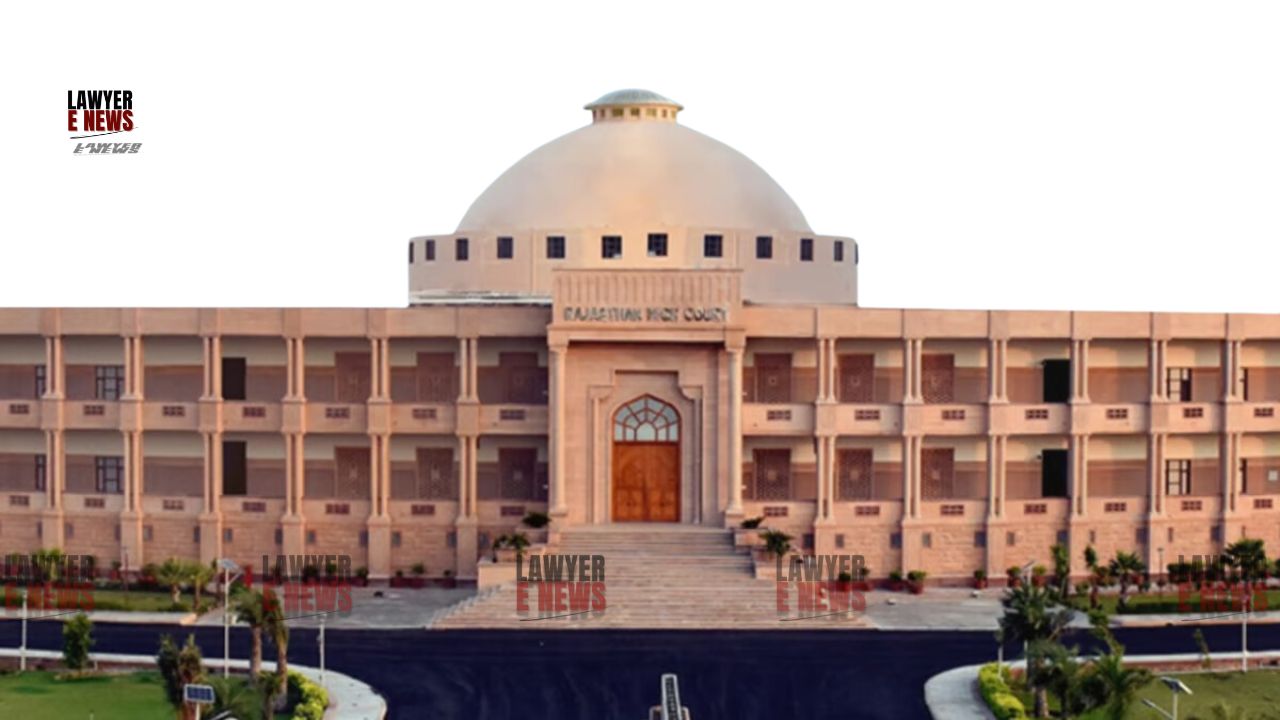-
by sayum
14 February 2026 2:22 PM



In a judgment Rajasthan High Court quashed the compulsory retirement order issued against Additional District & Sessions Judge Amar Singh. The Court held that the disciplinary proceedings were fundamentally flawed, being based on "no evidence" of judicial misconduct or improper motive, thereby making the punishment untenable.
Judge Amar Singh was subjected to disciplinary proceedings and subsequently awarded compulsory retirement on September 18, 2015. The primary charge was that he improperly granted bail to an accused, Satyanarayan, in a murder trial despite the dismissal of an earlier bail application by the High Court and the pendency of a transfer petition.
The inquiry stemmed from allegations of judicial impropriety and misconduct for entertaining the second bail application. It was contended that such actions undermined judicial propriety and were suggestive of bias.
The petitioner argued that the order granting bail was within his judicial discretion and based on reasoned judgment, citing the lack of substantial change in circumstances as immaterial to the decision.
The Court emphasized the principle laid out in Ramesh Chander Singh v. High Court of Allahabad: judicial decisions cannot form the basis for disciplinary action unless motivated by malice, bias, or illegality.
Procedural irregularities in the inquiry: The petitioner raised concerns over a flawed inquiry process, including delays in providing charges and critical evidence.
No substantive evidence of corrupt motives: The inquiry report found no proof of extraneous considerations or corrupt intent, and the complainant admitted under cross-examination to having no direct evidence of bribery or undue influence.
The Court stressed the importance of safeguarding judicial independence, noting that judges must not be subjected to disciplinary action merely for errors in judgment. It observed that the order granting bail was reasoned and cited relevant precedents, including the accused's prolonged custody and lack of cooperation from the complainant in the trial.
The Court criticized the inquiry process for failing to produce material evidence or witnesses to substantiate the charges. Key documents, such as the order sheet of the transfer petition, were not admitted as evidence during the inquiry.
The High Court held that disciplinary actions based on no evidence are unsustainable, aligning with precedents like M.V. Bijlani v. Union of India, which underscore the requirement of legally admissible evidence to prove misconduct.
The Rajasthan High Court concluded that the disciplinary proceedings against Judge Amar Singh were unfounded and marred by procedural improprieties. It quashed the compulsory retirement order, directing the reinstatement of all consequential benefits.
Date of Decision: November 14, 2024
